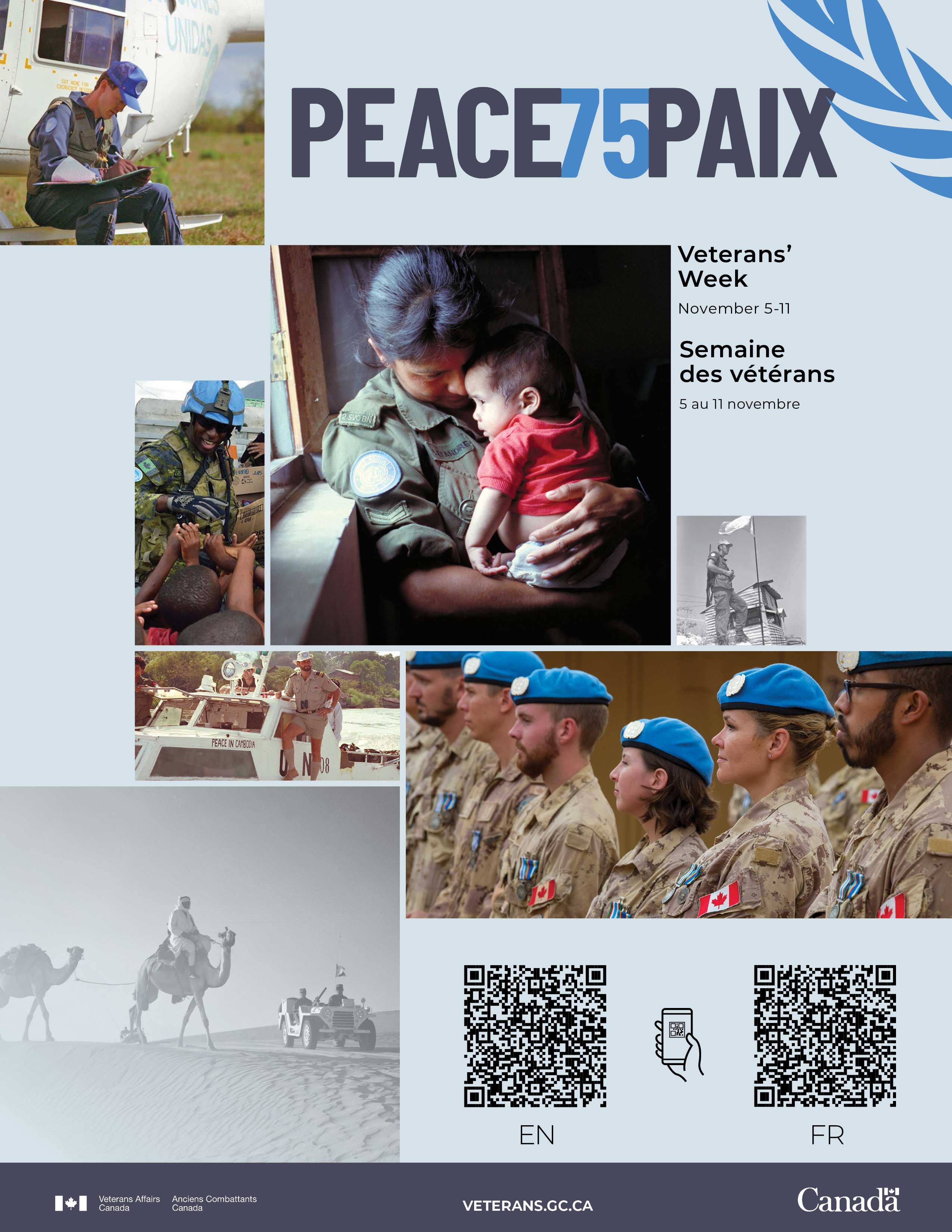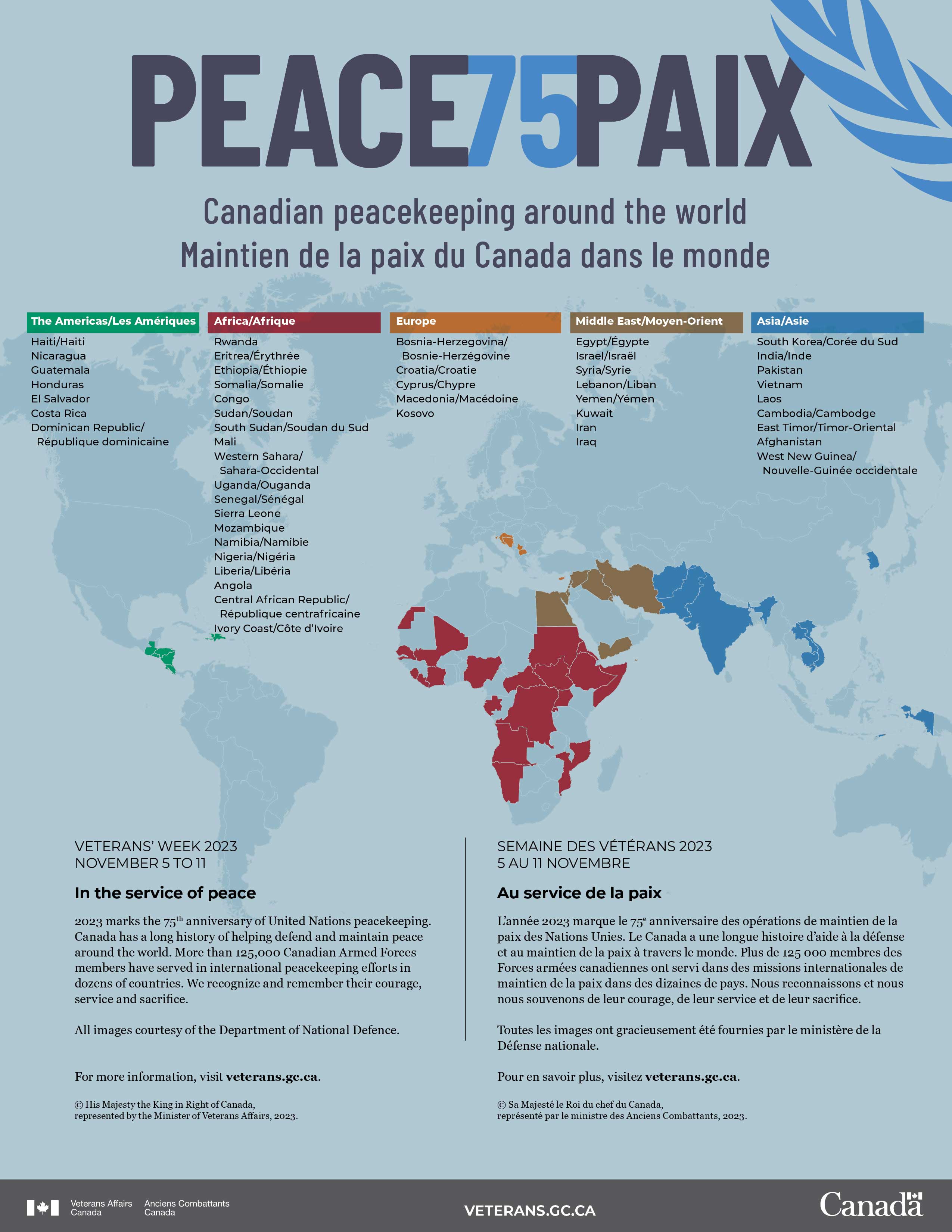In the service of peace
2023 marks the 75th anniversary of United Nations peacekeeping. Canada has a long history of helping defend and maintain peace around the world. More than 125,000 Canadian Armed Forces members have served in international peacekeeping efforts in dozens of countries. We recognize and remember their courage, service and sacrifice.
Explore our interactive Veterans' Week poster through videos, stories and maps.
All images courtesy of the Department of National Defence.
© His Majesty the King in Right of Canada, represented by the Minister of Veterans Affairs, 2023.

